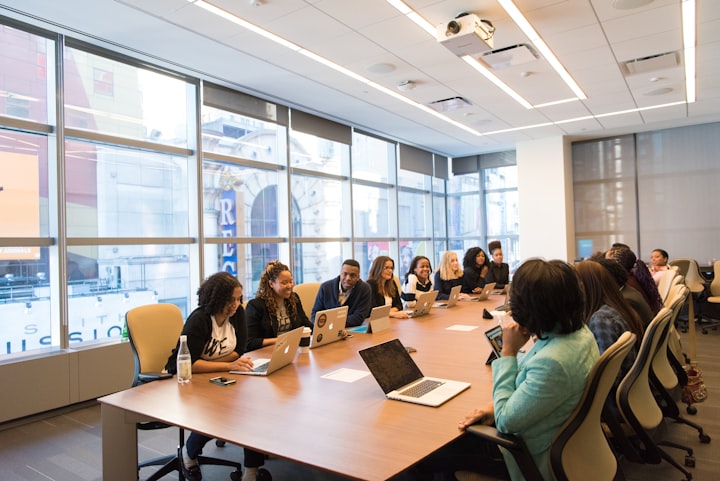The Kellogg’s Fiasco Shows How Strikes Can Be Oddly Beneficial For Human Health.
Again, what is best for business may not necessarily be what is best for human health.

The whole story of the Kellogg’s fiasco started way back on October 5, 2021 as 1400 workers across four Kellogg’s cereal processing plants acrossthe USA went on strike to dispute how they were being compensated — backed by their unions, of course.
According to Dan Osborn, the president of a Kellogg workers local in Omaha,
Veteran workers at his plant made about $30 per hour and that they felt especially frustrated by the company’s offer after working long hours, often on weekends, during the pandemic. They believed they had leverage over the company because of a general worker shortage and because some of their skills are specialized.
Immediately, we can see the effects of a power struggle at hand. When I have something that I can leverage over you, I can take advantage of that leverage.
In this case, the workers felt that they had sufficient leverage over the corporation — partly because of their skillset and partly because there was a shortage of workers during the pandemic, exacerbated further by The Great Resignation.
But the saga continues as Kellogg’s management decided that they would fire those 1400 union workers and look towards hiring new workers rather than negotiate better compensation packages for these union workers.
Because that brings about this interesting question:
If there already is a general worker shortage, then where are they going to find 1400 new employees in that short of a timeframe, and with those specialised skillsets?
To further complicate that, Reddit users decided to start spamming the Kellogg’s job portal with fake applications.
I’ve been reading Reddit’s r/antiwork threads with much fascination these days, and I do find that while I may not necessarily condone the act of spamming a job portal with fake applications, I still do see those facets of corporate greed running through many large corporations these days.
After all, it is the case that the CEO of Kellogg’s makes $11.6 million per year, according to The Good Liars:
But somehow, workers wanting to negotiate a pay bump from $30 per hour to a higher amount constitutes them as being greedy.
There’s a massive disparity in the compensation levels right there.
That being said, a disruption to Kellogg’s business isn’t necessarily all that bad for health.
I used to grow up liking Kellogg’s Frosted Flakes. The milk that I mixed with the cereal? It was so nice and sweet at the end.
That’s also because Kellogg’s Frosted Flakes contains 12 grams of added sugar per serving of 37 grams — you could say that the pure sugar added alone constitutes approximately one-third of the entire serving. Out of the 37 gram serving, 33 grams comprise carbohydrates (inclusive of the 12 grams of added sugar), out of which 1 gram is dietary fibre.
While dietary fibre is a carbohydrate, it cannot be digested down and metabolised by the body.
The amylase enzymes that our bodies produce can break down other complex carbohydrates into simpler sugars that the body can then absorb, which means that we’d be ingesting 32 grams of carbohydrates broken down into simple sugars per 37 gram serve.
That’s an 86% ingestion rate.
And 37 grams of carbohydrates will not keep one full for long.
We’d tend to end up looking for more food.
Which can result in us overdosing on sugar.
Which in turn leads to a growing obesity problem.
But why do many people go for processed cereals?
Unfortunately, we do have to recognise that processed carbohydrates like these come by relatively cheaply. They’re not going to break the bank. Children are going to like these foods. Even adults would like these foods.
And that’s the other disturbing trend that I see on Reddit’s r/antiwork.
Many people have their wages kept pathetically low to keep them desperate for work. Whether it’s the result of management overworking them or denying them raises and/or bonuses is one thing, but there is another facet of corporate greed being fleshed out there.
And in the Kellogg's fiasco, workers aren't being paid absurdly low minimum wages. They're asking for raises that the management is reluctant to give.
What about those people on minimum wage jobs though? Wouldn't they be worse off? When they don't even have a voice to fight?
When one isn’t making sufficient money to balance out their bills, they’d have to go for the cheapest foods to fill their stomachs.
Whether it’s processed cereals or free soda refills at McDonald’s, we see one thing in common — the overdosing of sugar.
And we know that the sugar overdose isn’t good for one’s health.
Which in turn sets them up for future health issues, which can then be leveraged by the healthcare and pharmaceutical industries in time to come. It’s a terribly vicious cycle where the root of the problem can be pinpointed to human greed and the love of money.
Perhaps that’s why the Bible would say in 1 Timothy 6:10 that
the love of money is a root of all kinds of evil.
So the funny thing is that if cereal production were to be halted…
The human population would then be exposed to much less of it.
Which then hits part of the money train. Because if people were to consume less of these processed carbohydrates, they wouldn’t be setting themselves up for the more financially-draining healthcare treatments and procedures in the years to come.
But the thing is that’s not going to be good for business.
It doesn’t make the best business sense to keep people healthy for the long run.
It makes more sense to keep them unhealthy, but alive long enough for their next payments to be processed.
And again, the love of money becomes the root of all evil, because keeping people barely alive is not even an altruistic move at all. Not one bit. When the quality of one’s life is that low, would people not desire to end it earlier?
The fundamental business model needs to be revamped significantly, but it takes one with sufficient clout to do it…
Or perhaps, the common people can unite and aim to topple the corporate bigwigs, like what the Kellogg’s workers are doing.
This article was originally published in Medium.
About the Creator
Dr Joel Yong
Engineering biochemical support strategies for optimal health. Subscribe to my mailing list to not miss out on the latest content!






Comments
There are no comments for this story
Be the first to respond and start the conversation.